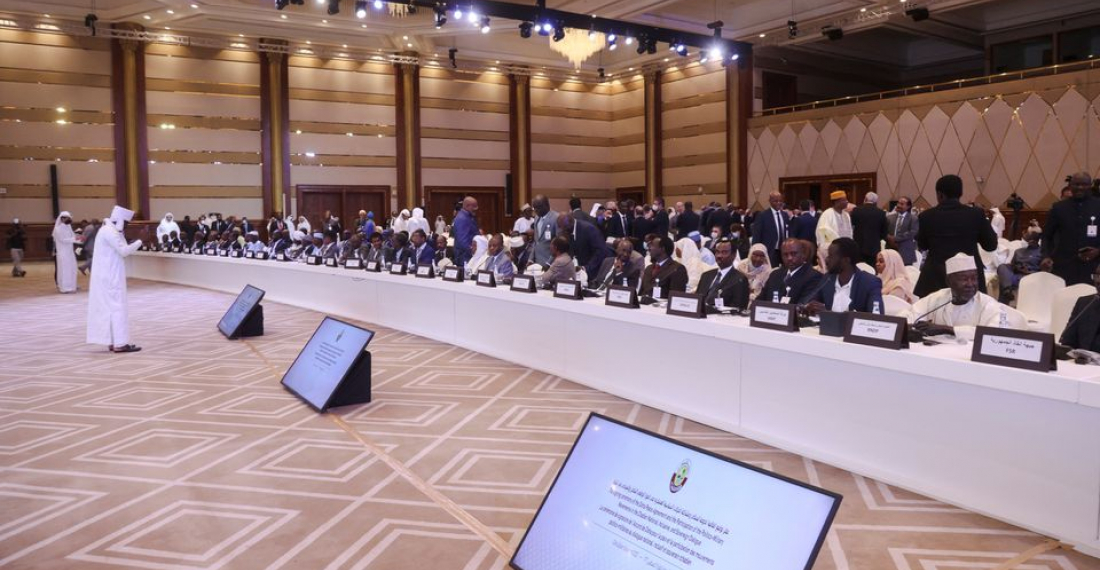Chad’s military government and opposition groups signed a pledge on Monday (8 August) in Qatar ahead of planned national reconciliation talks, though the deal did not include the country’s main opposition group. Qatar has been mediating between the different sides since last March.
Under the terms of the deal in Doha, those who signed have agreed to a cease-fire ahead of the talks scheduled for 20 August in the Chadian capital of N’Djamena. Chad’s military government also agreed to “not take any military or police operations against the signing groups” in neighbouring countries.
However, the Front for Change and Concord in Chad, the main rebel group in the country, did not sign the pledge. The group, known by its French acronym FACT, is blamed for the 2021 killing of Chad’s longtime President Idriss Deby, who had ruled the country since 1990.
That immediately called into question whether the deal would be enough to ensure the success of the talks as a planned 18-month transition from military rule to democracy winds down.
FACT did not immediately comment publicly on its decision not to sign the pledge.
We hope “other groups will join the march of reconciliation and peace, with a view to achieving the aspirations and dreams of the Chadian people,” Qatari Foreign Minister Sheikh Mohammed bin Abdulrahman Al-Thani told those gathered for the signing ceremony. “The initial peace agreement we are celebrating today will be an important turning point toward stability and prosperity for the Chadian people.”
“It is no secret that the negotiations faced many challenges which were addressed through your esteemed efforts,” Sheikh Mohammed added.
Those challenges include some 20 opposition groups walking out of the talks in July, accusing the military government under Deby’s 38-year-old son, Mahamat Idriss Deby, of “harassments, intimidation, threats and disinformation” amid the negotiations.
Rebels have called for Deby to declare he would not run in any coming elections, though the military government has insisted that can only be decided in the national dialogue talks. The pledge signed Monday in Qatar do not include any prohibition on Deby running in any coming vote.
Chad had grown frustrated by the 30 years of rule by Deby’s father, leading to years of rebel uprisings in the former French colony that borders Cameroon, the Central African Republic, Libya, Niger, Nigeria and Sudan. Unrest in those surrounding countries have seen Chadian rebel forces hide across the border.







